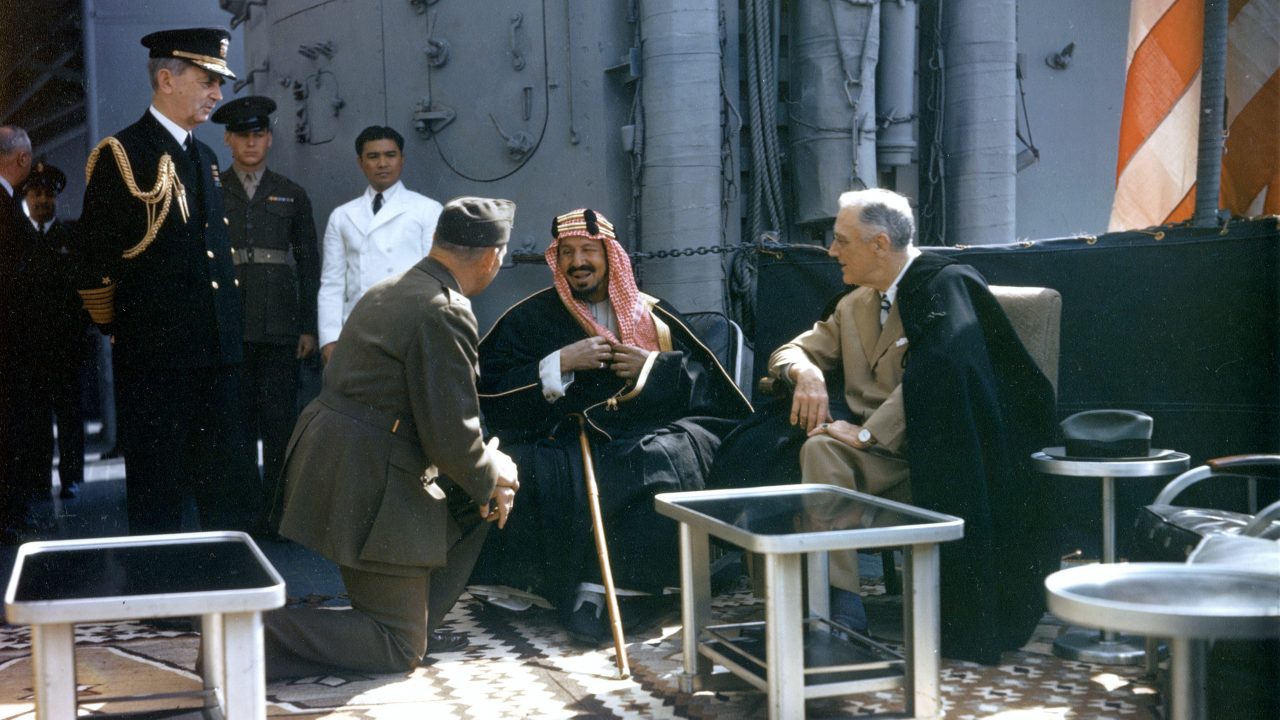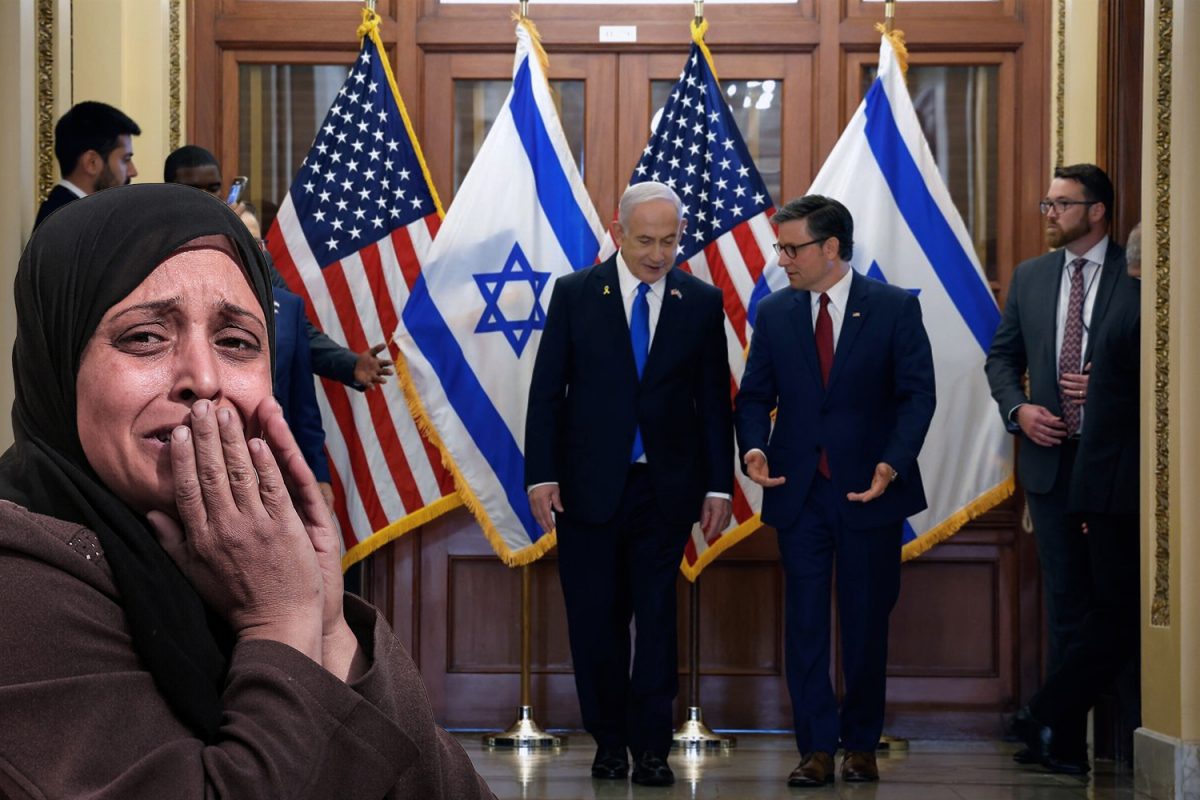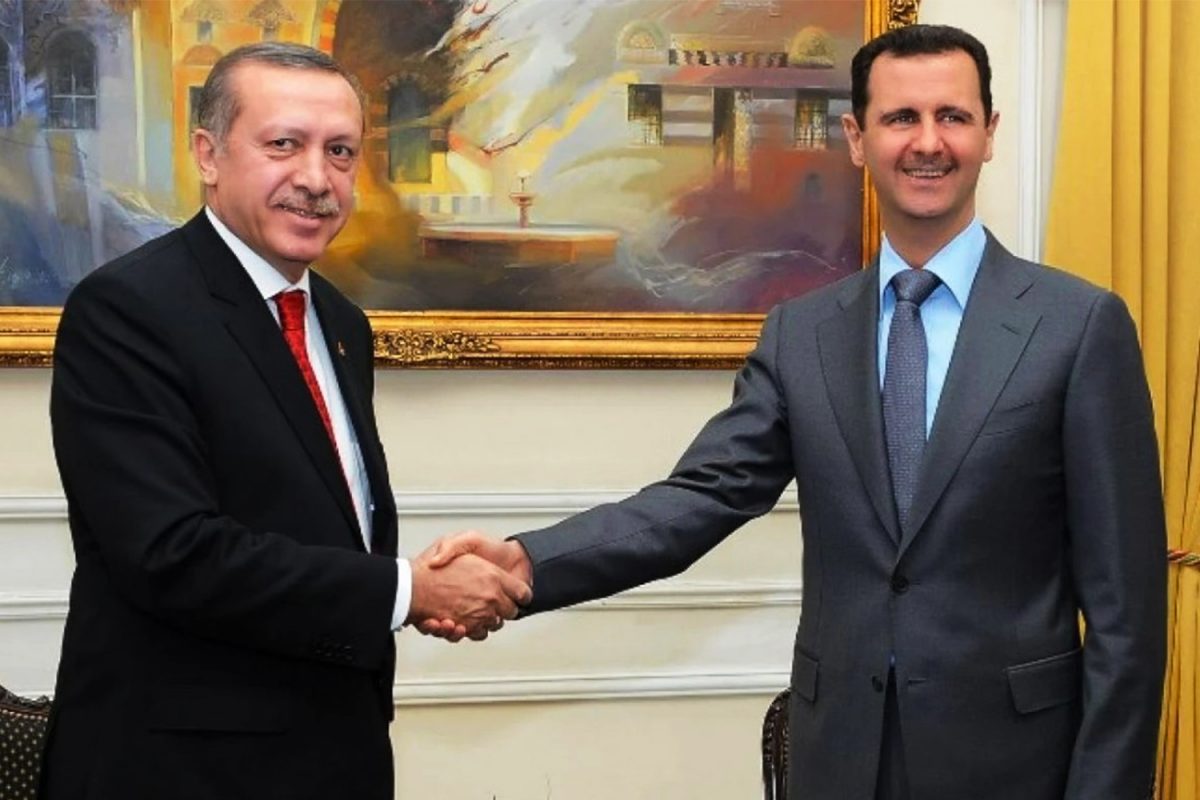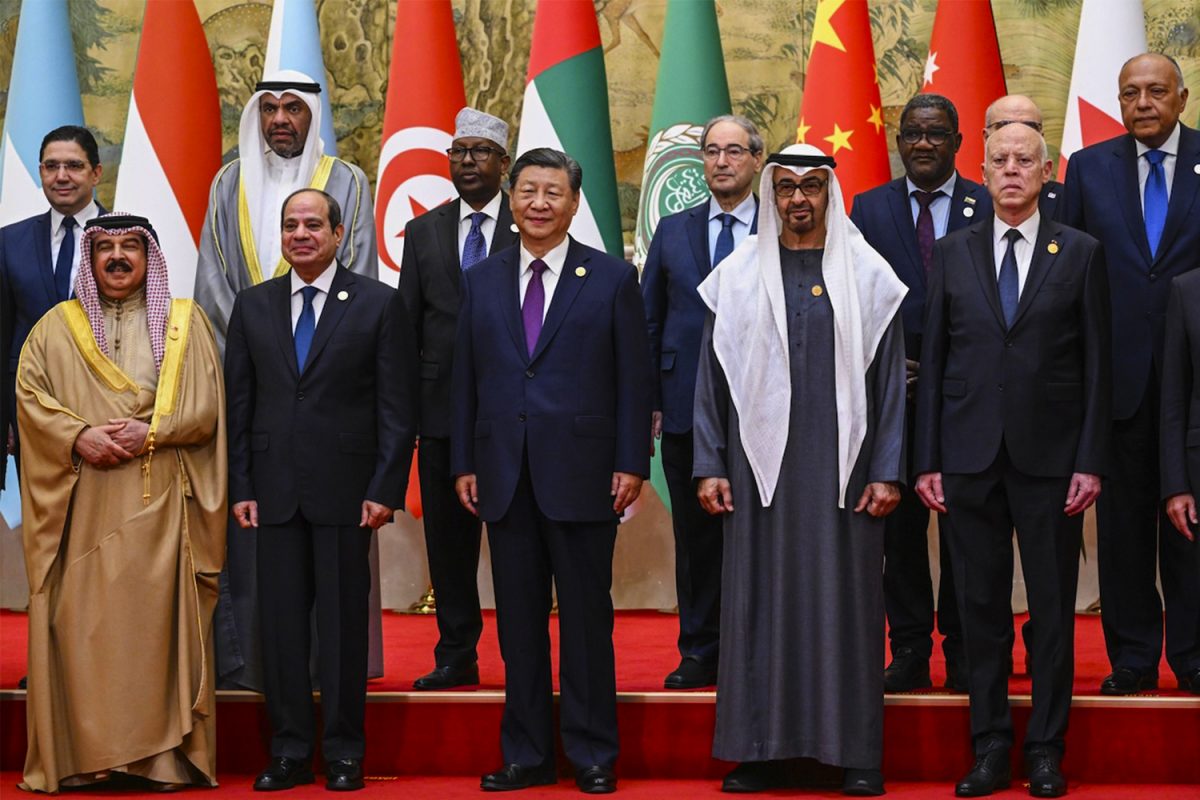US President Joe Biden released the long-awaited intelligence report on Fri 26th February that publicly blamed Saudi Crown Prince Mohammed bin Salman (MBS) for the assassination of the journalist Jamal Khashoggi. The long-awaited revelations did not reveal anything that was not already public and despite the other statements about defence freezes and the personal criticism of MBS, the US is not ‘dumping’ the kingdom nor changing her relations with the Saudi monarchy. The Saudi Kingdom has been a long-term reliable ally that has protected and supported US regional and global interests.
The US-Saudi relations began in 1931 when the US officially recognised the Kingdom of Saudi Arabia and extended full diplomatic relations with the monarchy. King Abdulaziz Al Saud, aka. Ibn Saud granted Standard Oil of California a concession that allowed it to explore the possibility of oil in the eastern portion of the desert-kingdom. This concession eventually became the Arabian-American Oil Company (ARAMCO). It was during World War II (WW2) that the US came to see Saudi oil as strategically important. In 1945 the famous meeting between President Franklin Roosevelt and King Ibn Saud aboard the USS Quincy took place and institutionalised the security relationship between the US and Saudi Arabia. The US was permitted to construct military bases in Saudi Arabia to provide security to the oil installations the US constructed.

During the Cold War, the US-Saudi relationship expanded from oil into a security alliance. The 1951 Mutual Defence Assistance Agreement formalised US military equipment sales to the kingdom and training of the Saudi military. The US came to see Islam as a tool against the spread of communism. Successive US administrations pursued a policy of making the Saudi monarchy the global Islamic leader. The relationship grew strong enough to survive the 1973 oil embargo. US-Saudi cooperation expanded to become very extensive and included facilitating contacts between the CIA and pilgrims visiting Mecca from Soviet Central Asia, as well as sending Saudi Arabia’s intelligence service to work alongside US, British and French agents in Muslim parts of Africa to undermine Soviet influence there.[1] Saudi Arabia funded, trained and armed numerous Salafi groups across the world to serve the US agenda against global communism. Speaking to the Washington Post in 2018, MBS admitted that Saudi Arabia’s Western allies urged the country to invest in mosques and madrassas overseas during the Cold War, in an effort to prevent encroachment in Muslim countries by the Soviet Union.[2]
The Saudi monarchy has played a key role in maintaining the US dollars global hegemony. In 1971, with the Vietnam War dragging on for over a decade and runaway spending, President Nixon suspended the dollar’s convertibility into gold. Leaving the gold standard eliminated the main reason foreign countries needed large stocks of US dollars. The Nixon administration dealt with this with a series of agreements with Saudi Arabia from 1972 to 1974, creating the petrodollar and giving foreign countries another compelling reason to hold and use the dollar. This new arrangement preserved the dollar’s special status as the world’s top reserve currency. The agreement was for the US to prop-up the Saudi monarchy in return for the world’s largest oil producer, with the world’s largest oil reserves selling oil in dollars and using its dominant position in OPEC to ensure all oil transactions would only happen in US dollars. The Saudi monarchy also agreed to recycle the many billions of US dollars from oil revenues into American weapons, manufacturers and infrastructure companies and also purchase US treasuries. By 1977 20% of all treasuries held abroad were in Saudi hands.
The Saudi monarchy has played an important role in the Middle East and in America’s balance of power strategy against both Iraq and Iran. The monarchy allowed 500,000 US servicemen in the Kingdom in 1991 when Iraq invaded Kuwait. After Operation Desert Shield the US kept 5000 troops in the Kingdom despite public opposition. This foreign presence of American troops in Saudi Arabia was recognised by the 911 commission as one of the motivations for the 9/11 attacks. Two of America’s largest arms deals in 2010 and 2017 were to Saudi Arabia in order to counter Iran in the region as well as create jobs domestically.
“the US is not ‘dumping’ the kingdom nor changing her relations with the Saudi monarchy. The Saudi Kingdom has been a long-term reliable ally that has protected and supported US regional and global interests.”
‘The Worst of All Cover Ups’
The brutal killing of Jamal Khashoggi on the 2nd of October 2018 in the Saudi Consulate in Istanbul resulted in an international backlash that particularly focused on MBS, which forced the House of Saud to unite to address the backlash. The comic Saudi story ranged from: we don’t know what happened, to he left the Consulate alive, to he was killed accidently in a fist fight with 15 other people in a rogue operation and finally admitting it was a rogue operation unknown to MBS. This placed the US in a difficult position due to the international outcry.
There were two issues that complicated matters for the US and her relations with Saudi Arabia. The first was the fact that Jamal Khashoggi moved to the US in 2017 and began writing for The Washington Post. With almost two million Twitter followers, he was the most famous political pundit in the Arab world and a regular guest on the major TV news networks in Britain and the US. Secondly, US President Donald Trump’s personal relationship with MBS saw him shrug off the noise and pressure from different sources about the killing of Jamal Khashoggi, stressing how valuable Saudi was in terms of US jobs and money. He stated: “Riyadh has been a very strong ally” and a “tremendous wealth and a tremendous amount of jobs in their purchases.”[3] President Trump sent his son-in-law Jared Kushner, Mike Pompeo as well as Press Secretary Sarah Huckabee Sanders, to Saudi Arabia to develop the narrative and limit the damage on MBS, due to his incompetence in the manner with which the Saudi regime managed the issue. Trump explained: “this was the worst cover up in history”[4]
The response from Congress was scathing of Trump and for the first time saw a unified front against Trump’s running of the administration. Senator Lindsey Graham, who was close to Trump and among the 22 Senators demanding action said: “If there is any truth to the allegations of wrongdoing by the Saudi government it would be devastating to the US- Saudi relationship and there will be a heavy price to be paid – economically and otherwise.” He went on to say “the Saudi authorities had nothing but contempt for American ‘values,” and that “this man (bin Salman) has to leave, because he is ‘toxic” and “can never be a world leader on the world stage.”[5] Marco Rubio, who almost beat Trump in the Republican primaries, was even more outspoken against both the crown prince and his friend the president. He denounced the notion of giving arms deals precedence over human rights, declaring: “There isn’t enough money in the world to purchase back our credibility on human rights and the way nations should conduct themselves.”[6] These two senators are senior politicians and represent the ruling elite in the US. The US establishment were dismayed by the way the Trump administration managed this crisis: using it to blackmail the Saudis and extort as much money out of them as possible in the form of investments and arms deals. At the time members of the intelligence community as well as former members along with various media outlets believed Trump had gone too far.
“The US establishment were dismayed by the way the Trump administration managed this crisis: using it to blackmail the Saudis and extort as much money out of them as possible in the form of investments and arms deals.”
Correcting Trump’s Wrong
The release of the intelligence investigation found MBS responsible for the murder, but much like Donald Trump, President Biden punished everyone but the culprit himself: US Treasury sanctions that targeted the hit squad sent to Istanbul and a deputy intelligence chief accused of mobilising it, but steered clear of MBS. President Biden, who is keen to show the US has now broken away from the Trump era and believes in a foreign policy based on principles and values, did not go beyond rhetoric and diplomatic pressure in order to maintain economic and strategic relations.
These relations include 165,000 American jobs that are created through exports to Saudi Arabia. Saudi foreign direct investment (FDI) to the US to the tune of $13.2 billion and 8,500 workers at Saudi-owned companies. Saudi Arabia’s Public Investment Fund also holds $12 billion in US stock as of February 2021.
President Biden has taken the credit for correcting the wrong of President Trump and used human rights considerations against MBS. But he did not rupture the decades long strategic relations between both countries and steered clear of any substantial action. In the past Saudi Arabia placed an oil embargo in 1973 against the US due to its support for Israel in the Yom Kippur War, the US still maintained its relations with the monarchy and normal relations resumed at the conclusion of the war. The murder of a Saudi dissident, as heinous as it was, is therefore always unlikely to rupture the relations between both nations, despite the US president using the issue for domestic purposes.
[1] 9 questions about Saudi Arabia you were too embarrassed to ask – Vox
[2] Saudi prince denies Kushner is ‘in his pocket’ – The Washington Post
[4] Trump says Khashoggi murder ‘worst cover-up in history’ – BBC News
[5] Saudis to pay price if journalist killed: US senator (aa.com.tr)




